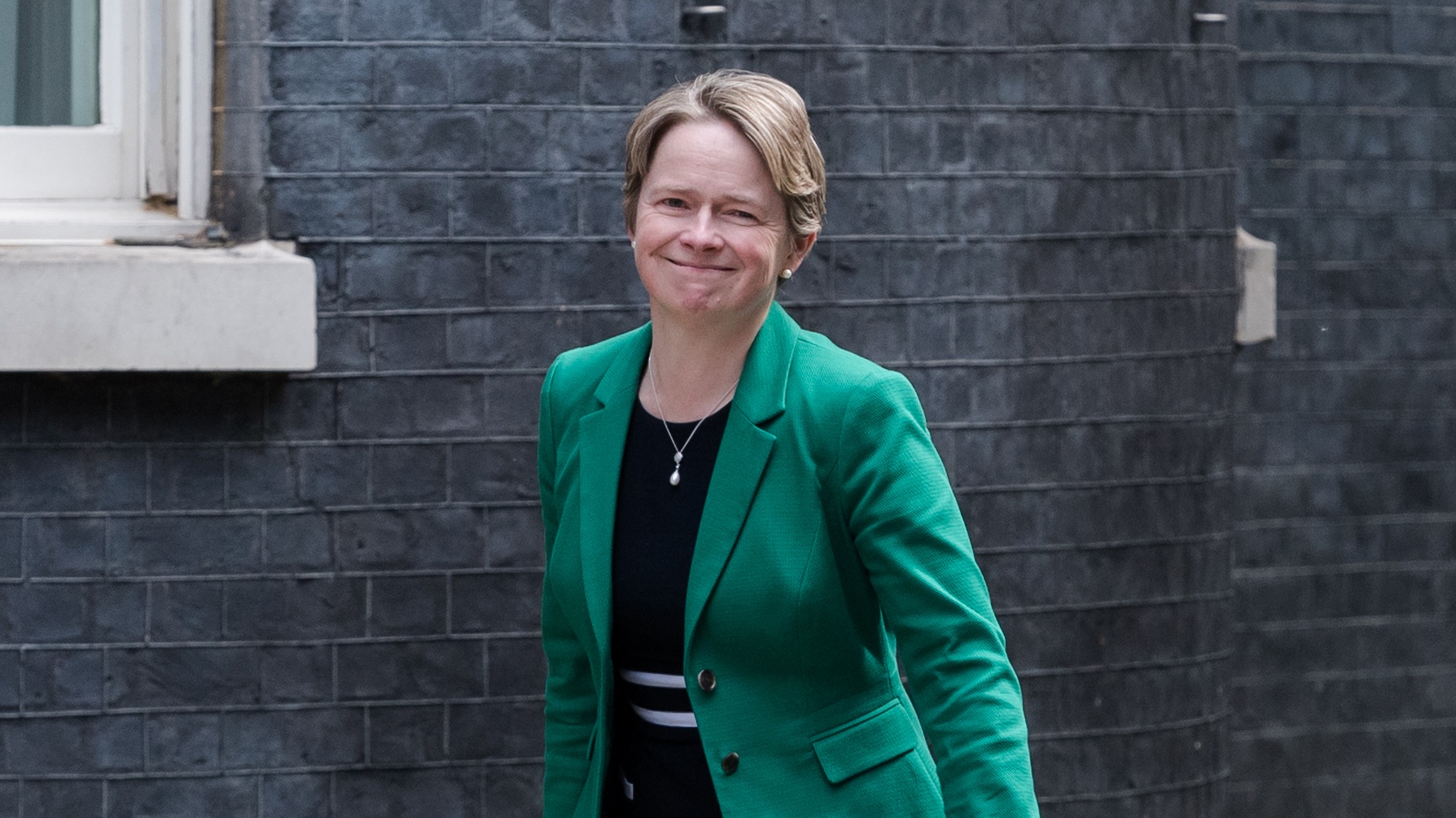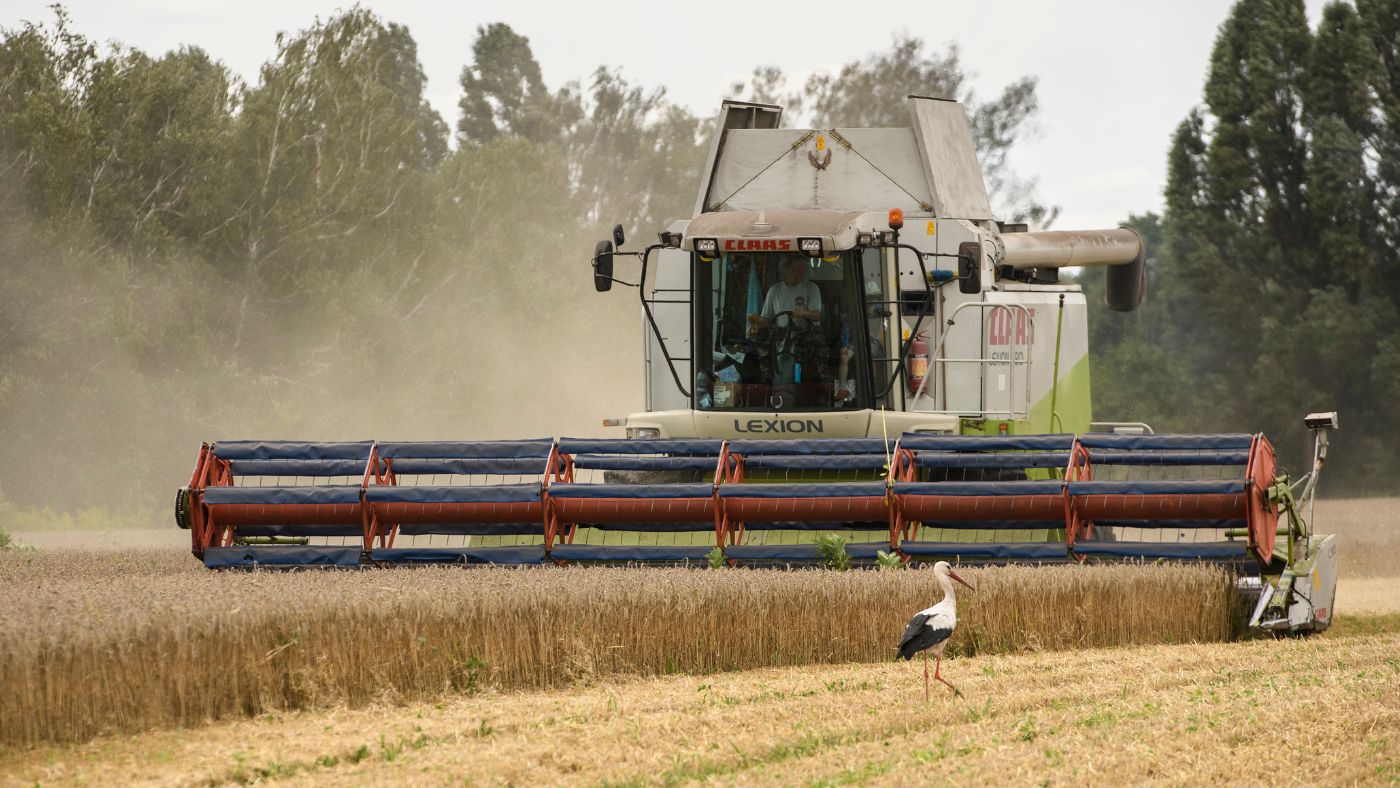‘Dido Harding is playing with fire in her bid to become NHS England chief’
Your digest of analysis and commentary from the British and international press

- 1. Dido Harding’s pledge to cut overseas NHS staff is a kick in the teeth
- 2. Planning reform could be Boris Johnson’s poll tax
- 3. Without British influence the EU is retreating into a protectionist hole
- 4. Too many influencers, not enough eyeballs: will boredom kill Instagram?
- 5. What quitters understand about the job market
A free daily email with the biggest news stories of the day – and the best features from TheWeek.com
You are now subscribed
Your newsletter sign-up was successful
1. Dido Harding’s pledge to cut overseas NHS staff is a kick in the teeth
Gaby Hinsliff in The Guardian
on a dangerous bid
Tory peer Dido Harding, “fresh from presiding over the chaos of track and trace”, has made an “audacious application to follow that” by gunning for the role of NHS England chief, writes Gaby Hinsliff in The Guardian. “Crucially, her pitch for the job reportedly includes a pledge to stop relying on overseas-born doctors and nurses and train British-born replacements instead,” she adds. “Short of stringing up a banner reading ‘Go Home, Foreigners!’ outside every hospital, it’s hard to think of a bigger kick in the teeth for the 14% of NHS staff who weren’t born in Britain and who will have arrived for work this morning, presumably wondering which of the patients whose lives they may save today would secretly prefer they weren’t here.” So “after a traumatic year fighting Covid, their reward is seemingly to become pawns in a game that can only embolden racist patients”, Hinsliff adds. “It’s hard to know for certain whether all this is part of a shockingly politicised public campaign for the job, or a leak designed to damage Harding by uniting NHS staff against her. But either way, it’s playing with fire.”
The Week
Escape your echo chamber. Get the facts behind the news, plus analysis from multiple perspectives.

Sign up for The Week's Free Newsletters
From our morning news briefing to a weekly Good News Newsletter, get the best of The Week delivered directly to your inbox.
From our morning news briefing to a weekly Good News Newsletter, get the best of The Week delivered directly to your inbox.
2. Planning reform could be Boris Johnson’s poll tax
William Hague in The Times
on house building
“The furore over the planning white paper reminds me in some respects of the gathering fuss about the poll tax,” writes William Hague, reflecting on a discussion he had with the then prime minister, Margaret Thatcher, after narrowly winning a by-election in Richmond, Yorkshire in 1989. “That is not to argue that it will be such an all-consuming issue or bring down a prime minister”, he continues, but the results of the Chesham and Amersham by-election signal there may be “huge trouble ahead, not just in the southern shires but among northern Tories, most of whom live in their own pleasant suburbs and villages”. “In a digital age, can we not involve local people much more in shaping nearby developments without losing time? In a low-carbon age, shouldn’t more homes be built near to workplaces?” he asks. “It can be hard to spot the issue on which you have to give ground. But if dozens of your own MPs are very worried, millions of people could be affected and angered, and longstanding voters have just given you a good thumping, you’ve got some very big clues.”
A free daily email with the biggest news stories of the day – and the best features from TheWeek.com
3. Without British influence the EU is retreating into a protectionist hole
Ross Clark in The Telegraph
on cultural divides
“Wasn’t Brexit supposed to turn Britain into an inward-looking, small-minded country while the EU forged ahead with its internationalist approach?” asks Ross Clark in The Telegraph. It seems “that was the wrong way round”. “Just look at the bloc’s latest initiative: an impact study of ‘British cultural imperialism” – which will be used to ban or limit the availability of British programmes in the bloc”, Clark says. “Of all the problems facing Europe, it is hard to imagine that too much Poldark being beamed into French and German living rooms would rank very highly,” he suggests. “But that is to under-estimate the minds of EU bureaucrats, whose interpretation of the words ‘ever-closer union’ appears to mean erecting barricades preventing all kinds of nasty, non-EU people and stuff from polluting the great cathedral of European civilisation.” If British television does well in Europe, “it isn’t because cultural imperialists in Whitehall have trained their gunboats on Europe’s TV studios”, he adds. “If EU programme-makers feel they are losing out on market share, they do have the option of trying to improve the quality of their products.”
4. Too many influencers, not enough eyeballs: will boredom kill Instagram?
Elaine Moore in the Financial Times
on yesterday’s platform
Instagram, “once the apple of Facebook’s eye, has spent years rebuffing accusations of toxicity”, writes Elaine Moore in the Financial Times. “But tedium is a painful new problem”, one which “poses a threat to Instagram’s money-making abilities just as its owner’s market valuation approaches a trillion dollars”. “It is difficult to know whether Instagram has changed or its users have simply grown up. The millennials who made Instagram into a phenomenon are creeping towards middle age, after all,” notes Moore. Indeed, the pandemic “seems to have hastened an existing trend. Bragging, the motivation for most Instagram posts, did not sit well with cancelled holidays and shuttered restaurants.” She goes on: “Instagram must hope that its user base is big enough to avoid MySpace-style irrelevance. Facebook has shown that it is skilled in extracting more revenue from the same pool of users even as its cultural impact dwindles.” Instagram will “need to perform the same trick again”, Moore adds, otherwise “user boredom will start to hit the company’s bottom line”.
5. What quitters understand about the job market
Derek Thompson in The Atlantic
on work-life optimism
“Quitting your job is hot this summer,” writes Derek Thompson in The Atlantic. “More Americans quit in May than any other month on record going back to the beginning of the century.” And it’s not just low-wage workers who are “eyeing the door”, it’s white-collar workers too. So “why the sudden burst of quitting?” asks Thompson. One theory is “that we’re living through a fundamental shift in the relationship between employees and bosses” meaning “up and down the income ladder, workers have new reasons to tell their boss to shove it”. “Quitting gets a bad rap in life, as it’s associated with pessimism, laziness, and lack of confidence,” Thompson says. “In labour economics, however, quits signify the opposite: an optimism among workers about the future; an eagerness to do something new; and a confidence that if they jump ship, they won’t drown but rather just land on a better, richer boat.”
-
 Local elections 2026: where are they and who is expected to win?
Local elections 2026: where are they and who is expected to win?The Explainer Labour is braced for heavy losses and U-turn on postponing some council elections hasn’t helped the party’s prospects
-
 6 of the world’s most accessible destinations
6 of the world’s most accessible destinationsThe Week Recommends Experience all of Berlin, Singapore and Sydney
-
 How the FCC’s ‘equal time’ rule works
How the FCC’s ‘equal time’ rule worksIn the Spotlight The law is at the heart of the Colbert-CBS conflict
-
 Triangle-headed aliens touched Goldie Hawn
Triangle-headed aliens touched Goldie HawnTall Tales And other stories from the stranger side of life
-
 ‘Islas Malvinas’ and the new battle over the Falklands
‘Islas Malvinas’ and the new battle over the FalklandsTalking Point Argentina scores ‘major diplomatic win’ as EU refers to British territory by its disputed name
-
 Captain Tom charity closes to donations amid daughter’s pool row
Captain Tom charity closes to donations amid daughter’s pool rowSpeed Read Hannah Ingram-Moore to appeal council order to demolish spa complex at her home
-
 Dutch king apologizes for country's role in slave trade
Dutch king apologizes for country's role in slave tradeSpeed Read
-
 Ukrainian grain: rousing the fury of east Europe’s farmers
Ukrainian grain: rousing the fury of east Europe’s farmersfeature Three Eastern European countries have banned grain imports from the war-torn country
-
 The Week Unwrapped: Sex and health, the Earth’s core and another new year
The Week Unwrapped: Sex and health, the Earth’s core and another new yearpodcast Is the NHS failing British women? What’s going on at the centre of our planet? And what’s in a date?
-
 Swedish mining company discovers Europe's largest rare earth element deposit
Swedish mining company discovers Europe's largest rare earth element depositSpeed Read
-
 10 things you need to know today: December 18, 2022
10 things you need to know today: December 18, 2022Daily Briefing North Korea fires pair of ballistic missiles that could potentially reach Japan, EU reaches deal on key climate change agenda, and more